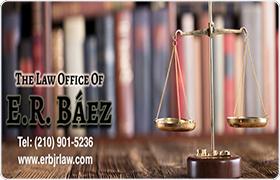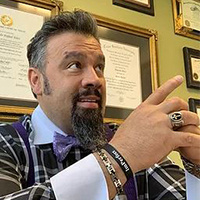Rio Medina Felony Lawyer, Texas
Sponsored Law Firm
-
 x
x

Click For More Info:
-
The Law Office of E.R. Báez
700 N. Saint Mary's Street Suite 1400 San Antonio, TX 78205» view mapCriminal Defense Law The Pastor Lawyer
Every client is special to us and every client will be treated with respect and dignity. No matter how difficult the case may be, Mr. Báez will treat you with the upmost dignity.
800-903-7181
Jaime Aldape
✓ VERIFIEDCriminal, Felony, Misdemeanor, DUI-DWI
100% Criminal Defense
The Aldape Law Firm P.L.L.C. is 100% devoted to criminal defense. This includes: State and Federal Criminal Cases - examples: DWI, Drug Possession... (more)
FREE CONSULTATION
CONTACTBritney Faryn Betts
Domestic Violence & Neglect, Felony, DUI-DWI, Criminal, Misdemeanor
Status: In Good Standing Licensed: 11 Years
FREE CONSULTATION
CONTACTChristopher Charles Rosas
Litigation, Oil & Gas, Felony, Bankruptcy
Status: In Good Standing Licensed: 23 Years
G. Thomas Coghlan
Real Estate, Litigation, Employee Rights, Felony
Status: In Good Standing Licensed: 60 Years
FREE CONSULTATION
CONTACT E.R. Báez San Antonio, TX
E.R. Báez San Antonio, TX Practice AreasExpertise
Practice AreasExpertise

